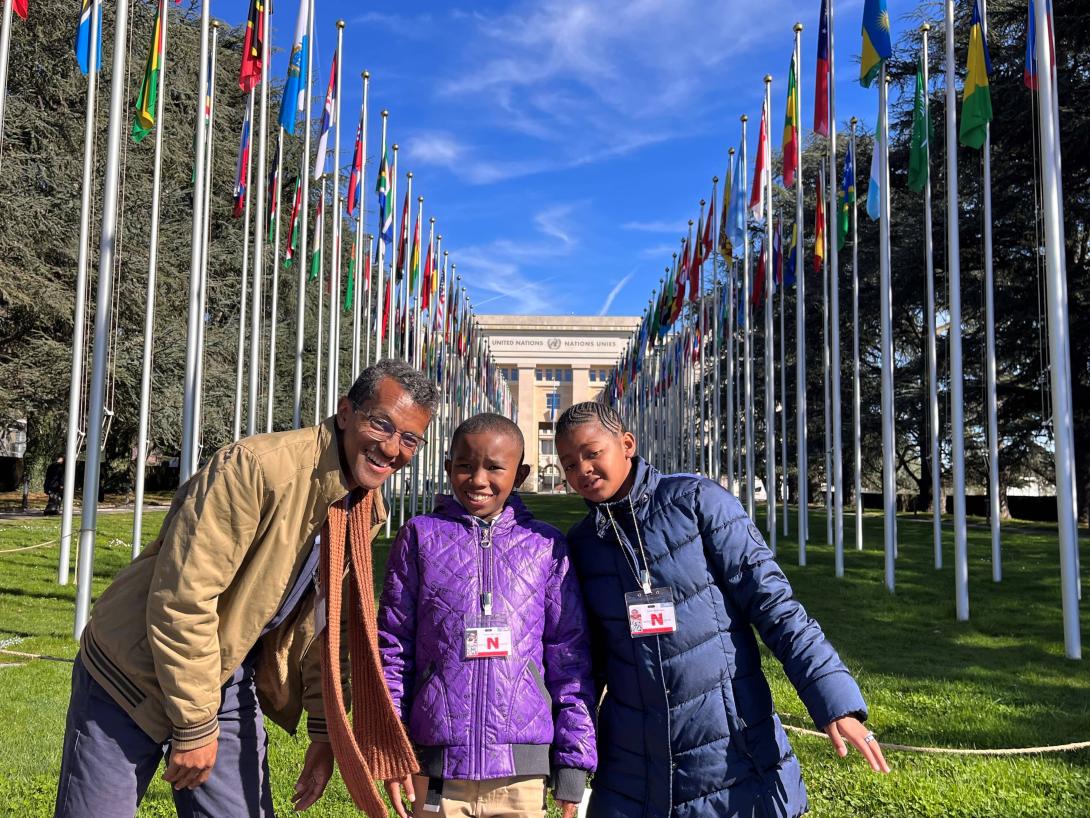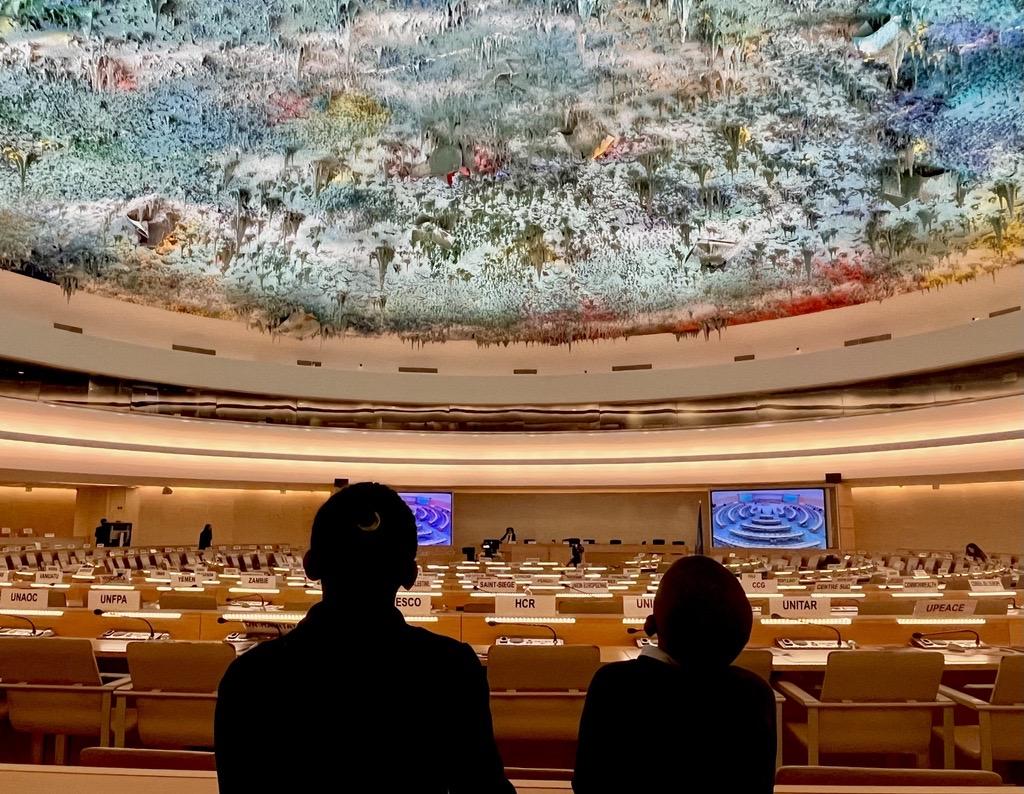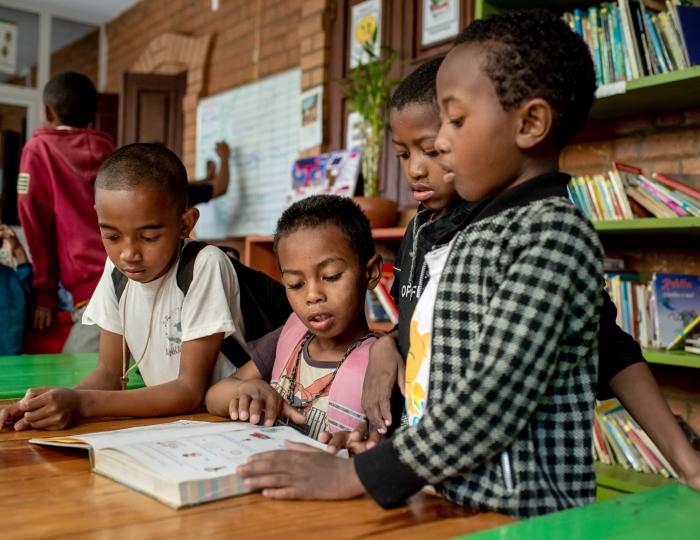

To mark International Day for Street Children (12 April), two children who have lived on the streets of Madagascar came to Geneva to talk about their experiences at the United Nations. They spoke at the Human Rights Council's annual Day on the Rights of the Child, which focused on inclusive social protection. Ronaldo and Marie Elia, 13, tell the story of this extraordinary adventure.
From the streets of Madagascar to Geneva
My name is Ronaldo, I'm 13 and I live at the NRJ Centre*. Elia and I lived on the streets before coming to live at the Centre. For the first time, we got on a plane and came to Geneva to pass on messages to the authorities about the situation of children in Madagascar. The rights of all children should be equal, whether they are on the street or not.
It wasn't easy to get here, because until a few months ago we didn't even have a birth certificate. We also took the time to prepare well before the trip with the educators. The other children helped us carry the messages. We couldn't have done it alone. In Geneva, we practised public speaking so that we felt comfortable and prepared our speeches.
My speech at the United Nations
On 14 March, at the UN, I gave a speech to the Human Rights Council: I spoke in front of a room full of diplomats and people who work for the United Nations, such as UNICEF. I was a little scared, but afterwards I took a deep breath and felt better. I asked the States to support children like us, the centres and the families:
"Today I represent the children who live on the streets of Antananarivo in Madagascar. We work there, we sleep there, often alone, sometimes with friends, sometimes with family.
Our parents want to give us the best, to educate us and send us to school like the other children. But how can they do that if they can't afford a house? To feed us? To look after us when we're sick?
How can we dream of the future when we are forced to live and sleep around the city's garbage bins?
We feel that we don't have the same rights as other children. Some have the right to everything, and we have the right to nothing.
Explain to us how the State protects us when we are afraid of what happens to us in the street, in the markets where we sleep.
How can the State guarantee our rights? To have an identity, clothes, a house, to go to school for free and to live with dignity and in good health?
Can it help us? Help our parents and the centres that support us?"
We were also able to talk to other children who spoke that day, such as a young defender of children's rights in Peru: in Sheyla's country, children's rights are not sufficiently respected either. She represents the children in her country too.
When we return to Madagascar, I'll tell the children all about what we've seen, people in high positions, higher positions than us, but who have held a meeting that talks about us, that talks about children in street situations.

During that day, Ronaldo and Elia were followed by a journalist for a video report on the evening news of Léman Bleu, the local television channel in Geneva: available here
Following the discussion, the States adopted by consensus a resolution committing them to implementing inclusive social protection for all children, including those in street situations. This resolution is a step forward in the prevention of the phenomenon of children in street situations, as well as in the promotion of their rights: without State support, these children have no access to healthcare, housing, education, etc. The text also includes a new section that strengthens the capacity of the United Nations to advance the integration of children's rights throughout the UN system.
The adoption of this text sends out a strong signal about the need for governments to increase their efforts to provide social protection for children, including those in street situations, who are the most forgotten by state services.
*The NRJ Centre is one of our 5 partners in Madagascar. Together, we are carrying out the "Sandratra" project, which aims to reintegrate children in street situations in Madagascar.
